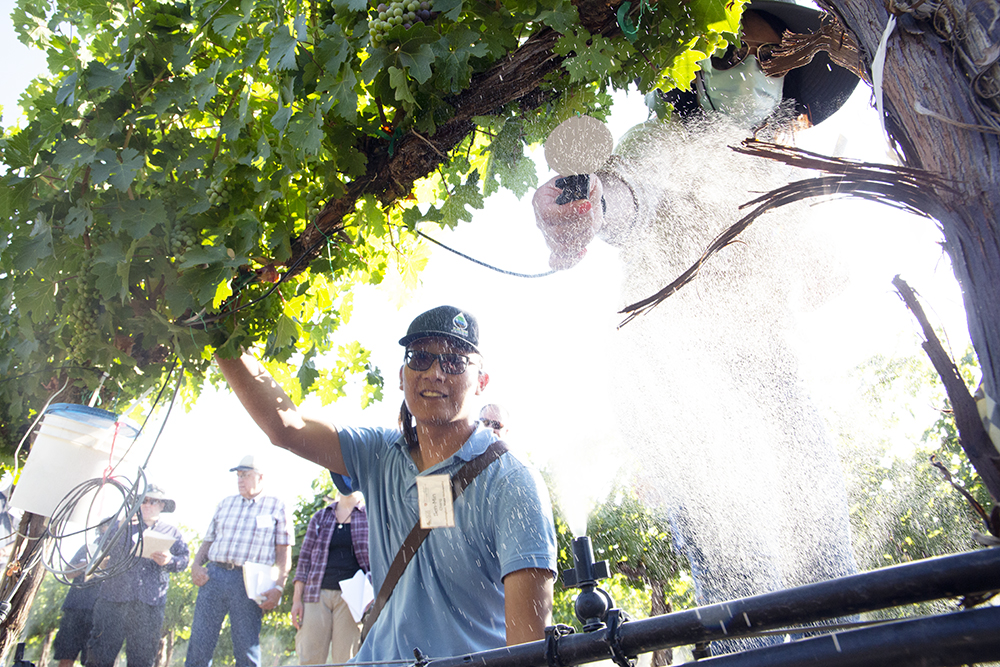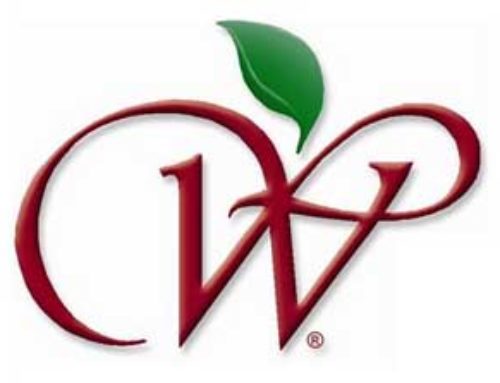
During a summer of record-breaking heat, Ben-Min Chang’s vineyard cooling system research drew extra interest at the July 29 viticulture field day.
The Washington State University researcher’s experimental mister was one of the stops in a circuit of four for attendees of the field day, held by Washington State Grape Society and WSU at the university’s research vineyard north of Prosser.
Designed to cool grapes without irrigating them or encouraging mildew, the system’s thermometers in the canopy near the fruit automatically trigger fine mist emitters at certain temperatures. A nearby leaf-shaped sensor then measures wetness. Either the thermometer or the wetness sensor will then turn the canopy off.
Earlier in the week, organizers rescheduled the field day from late afternoon to early morning, to beat the heat. To trigger his system for a demonstration, Chang rubbed his hands together and gripped the thermometer. Later in the day, he would have had trouble turning it off as temperatures reached the expected high of 100.
During the late-June, early-July heatwave, Chang said the system ran all afternoon at times.
The trials measure fruit size and, in the fall after crush, several fruit characteristics. WSU also will make wine with the Cabernet Sauvignon grapes to determine how the mist affects wine quality. Last year, the misters hung over the canopy but didn’t have much effect on fruit quality, Chang said. This year, he rigged them below the fruit zone to shoot up more directly on the grapes.
Other stops included demonstrations about how soil texture affects irrigation, fertigation and chemigation; the use of Ziploc bag kits to detect not only the presence of powdery mildew, but if the particular strain has resistance to FRAC 11 fungicides; trials of different approaches to deficit irrigation; and smoke taint experiments.
—by Ross Courtney






Leave A Comment